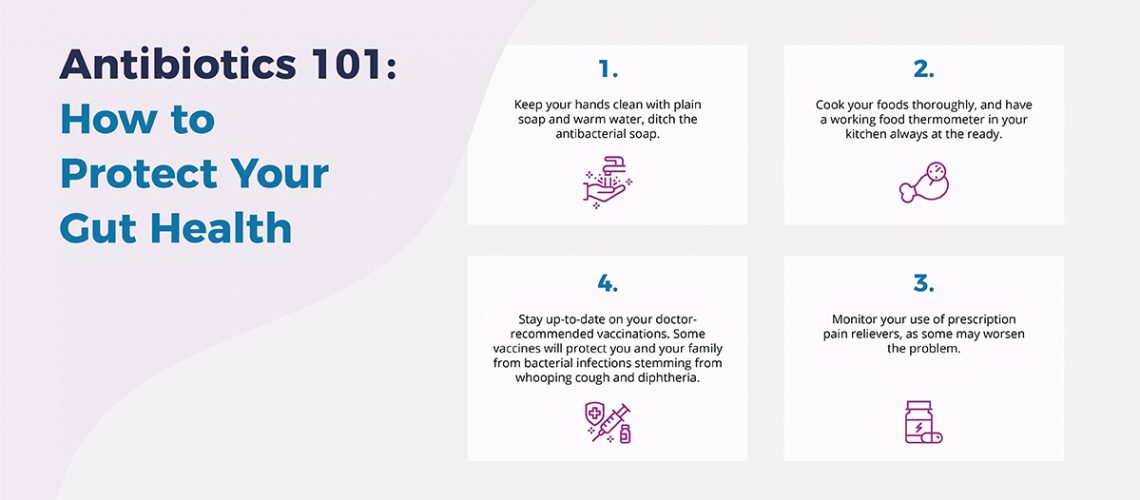Digest This
Click on the topics below to learn how probiotics can improve your digestive health, naturally.

Antibiotics 101: Protect Your Gut
- @drHoberman
- Digestive Health, Drug interactions, Probiotics
Antibiotics 101: How to Protect Your Gut Health
Every so often, we like to remind you about basic health and lifestyle steps you can take that may help or harm your gut health, like the do’s and don’ts of taking an antibiotic safely.
Antibiotics were once considered “miracle” drugs that treated serious health issues and controlled the spread of disease. For example, some childhood conditions like strep throat and bacterial meningitis were fatal diseases before antibiotics.
Over time, however, antibiotic drugs transitioned from their “miracle” status to being prescribed for many more health problems, such as viral infections like colds, the flu and most coughs and many sinus infections, that do more harm than good.
An estimated 43 percent of the antibiotic prescriptions in America were issued for health problems that were completely unnecessary, based on numbers compiled in a 2019 Oregon State University report.
How did this happen?
The simple explanation: The overuse of antibiotics, plus our exposure to antibacterial chemicals in soaps, paints and even gym equipment, has over-sterilized our lives to such a degree that these drugs may promote resistance and, in some cases, do not work as they should or at all.
This could lead to infections that cannot be treated with antibiotics become much more costly (more expensive treatments, trips to the doctor) and much harder to treat.
Are you concerned about that next antibiotic prescription from your physician? We’ve got you covered.
Your antibiotic protocol
Antibiotics are valuable medications when they’re prescribed by your doctor for good reasons, not because you’ve had a persistent cold or flu and want to feel better right now.
If you’re concerned about over-exposure to antibiotics, it’s important to talk to your doctor or pharmacist. Do not be afraid to ask them questions!
And, if you do need to take an antibiotic, take them as prescribed by your physician until your course is completed. That’s critical because lots of people only take antibiotics until they start feeling better, then drop them.
Here are some extra steps you can take on your own to lessen the need for antibiotics:
- Keep your hands clean with plain soap and warm water, and ditch the antibacterial soap.
- Cook your foods thoroughly, and have a working food thermometer in your kitchen always at the ready.
- Monitor your use of prescription pain relievers, as some may worsen the problem.
- Stay up-to-date on your doctor-recommended vaccinations. Some vaccines will protect you and your family from bacterial infections stemming from whooping cough and diphtheria.
When you absolutely need to take an antibiotic for a health problem, please remember that it’s vital to protect your gut, the center of your body’s immune system too.
Antibiotics create problems for the gut by depleting the balance of bacteria that normally keep you healthy. If you have to take an antibiotic and want to protect the health of your gut, consider taking a probiotic, ideally with multiple strains of beneficial bacteria like EndoMune Advanced Probiotic.
EndoMune’s powerful formula of 10 beneficial strains of bacteria from the Bifidobacterium and Lactobacillus families and a prebiotic (that feeds the good bugs in your gut) not only protects but supports your immune health.
Taking a probiotic like EndoMune about two hours before that necessary antibiotic gives those beneficial bacteria extra time to reach your gut and protect it and your immune health when you really need it the most.
Resources
There Is An Endomune Probiotic For Every Lifestyle
-
EndoMune Metabolic Rescue
$44.95 -
EndoMune Advanced Probiotic
$42.95 -
EndoMune Companion Pack
$112.93









